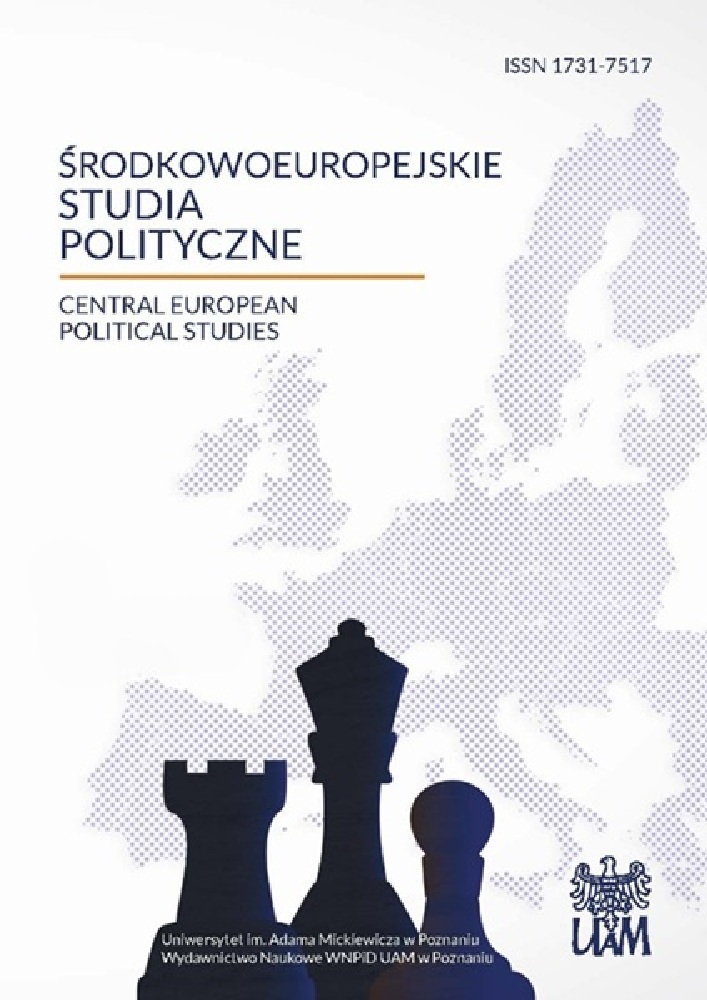Abstract
The paper refers to two apparently unrelated situations, that of a political crisis and a crisis of politicality. The author attempts to provide evidence for the fact that the etiology of these crisis situations is related to the democratic paradigm being exhausted. The combination of the instrumental and teleological activity of the actors is decisive for the content of mobilization, which is one of the fundamental reasons for both political crises and the crisis of politicality.References
Dobry M., Socjologia kryzysów politycznych,Wydawnictwo Naukowe PWN,Warszawa 1995.
Etzioni A., The Active Society. A Theory of Societal and Political Processes, New York 1968.
Mączyński J. F., O racjonalności technicznej dyskusyjnie, „Transformacje” 1998, nr 1–4 (15–18), s. 71–76.
Phillips E., TheWar on Civil Law? The Common Law As a Proxy For the Global Ambition of Law and Economics, „Wisconsin International Law Journal”, Wisconsin 2007.
Tilly Ch., From Mobilization to Revolution, Reading, Massachusetts 1978. Weber M., Knies und das Irrationalitätsproblem, w: M. Weber, Gesammelte Aufsätze zur Wissenschaftslehre, J. C. B. Mohr, Tübingen 1973, s. 42–105.
Weber M., Objektive Möglichkeit und adäquate Verursachung in der historischen Kausalbetrachtung, Gesammelte Aufsätze zur Wissenschaftslehre, J. C. B. Mohr, Tübingen 1973, s. 146–214.
Weber M., R. Stammlers «Überwindung» der materialistischen Geschichtsauffassung, Gesammelte Aufsätze zur Wissenschaftslehre, J. C. B. Mohr, Tübingen 1973, s. 291–359.
Weber M., Roscher „historische Methode”, Gesammelte Aufsätze zur Wissenschaftslehre, J. C. B. Mohr, Tübingen 1973, s. 3–42.
License
Copyright
© 2010, Uniwersytet im. Adama Mickiewicza w Poznaniu, Wydawnictwo Naukowe Instytutu Nauk Politycznych i Dziennikarstwa
OPEN ACCESS
